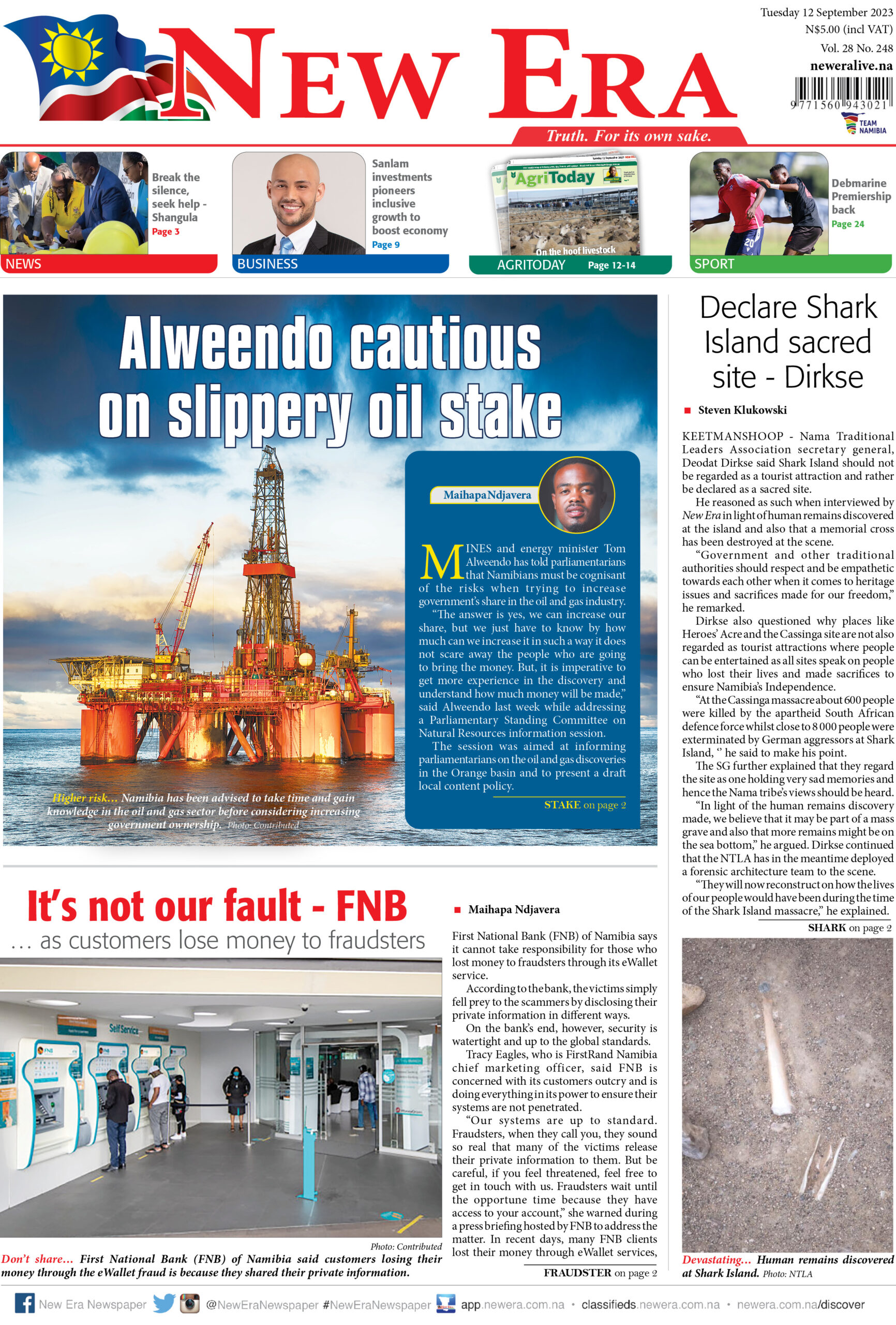The Windhoek municipality is in a financial quagmire, which, if not arrested could collapse the city and residents will pay the ultimate price. Generous salaries and perks have made the city technically bankrupt.
The precarious financial position, in which the city finds itself, was ventilated by Independent Patriots for Change (IPC) management committee member Jürgen Hecht at a press conference on Monday.
The municipality is sitting with a cumulative loss of N$3.2 billion in the last decade, N$300 million wage bill, N$100 million annual employee vehicle scheme, N$70 million losses on bus services and a lifelong post-retirement medical aid scheme. Windhoek is technically insolvent was the emphatic message from Hecht. The presser was overshadowed by an 11th hour attempt by mayor Sade Gawanas to call it off.
The MC went ahead, despite the protest, saying Windhoek residents deserve to know the state of affairs at the municipality.
The damning statistics have placed the future of water provision in jeopardy.
Last year, the municipality’s losses amounted to N$480 million.
This takes the total losses to N$3.2 billion.
Breaking it down, he said, the money could have been used to build 6 500 two-bedroom houses valued at N$500 000 each or 3 200 kilometres of city roads would have been tarred at N$1 million per kilometre.
“Very few companies or commercial enterprises that operate on such can absorb such a loss over an extended amount of time. This has taken a toll on the solvency of the City of Windhoek,” he said.
Hecht said the city is unable to embark on any major capital project, as there is simply “no money”. At present, he said, City of Windhoek employees are among the highest paid in the country.
He said it is so bad that in some instances, employees are paid over 144% more when juxtaposed to market-related salaries.
“In the lowest bracket, we pay 600% above market rate more than what the market pays. We have to look at this. We cannot afford it,” he said.
The budgeted employment cost for the 2022/23 financial year is N$1.6 billion.
If this is reduced by 30 or 25%, the city could save around N$400 million, Hecht theorised.
The city must also review the staff vehicle scheme, which stands at N$100 million with Wesbank. Presently, the municipality itself is in the process of acquiring vehicles for about N$6 million through this facility.
Meanwhile, N$59 million has already been used by staff acquiring vehicles at a fixed interest rate of 5%.
The prime interest rate on car loans is 8.5%.
This means the local authority is responsible for the 3.5% deficit on behalf of employees.
This is not sustainable, Hecht lamented.
“In view of the excessive remuneration policy, one obviously has to look at this again. Salaries at the City of Windhoek are too high,” he said, adding that urban minister Erastus Uutoni holds a similar view.
For example, City Police officers are currently paid two to three times more than their Namibian Police counterparts.
The City Police has 430 active staff members and there are 193 vacancies to be filled.
The budgeted salary for the current financial year is N$230 million or 90% of its total cost.
The police collect about N$19 million, mostly through traffic fines per annum or through levies from the Road Fund Administration.
“The fact is that, with all commendable efforts by the City Police, the City of Windhoek Police, together with national police, there may be duplication of services and it needs to be reviewed. Because you cannot afford a City Police of N$230 million in our current financial predicament,” he revealed.
This situation is untenable and must be reviewed, Hecht said.
The city currently spends around N$200 million on City Police operations, a bulk of which is gobbled up by astronomic salaries.
“Cash flow is a sincere problem,” Hecht stated. Drastic measures must be taken, he said, as he likened the municipality to a sinking Titanic.
The only lifeline the city has is a N$200 million overdraft facility that allows it to go from month to month.
“If you look at the past nine years, the City of Windhoek has incurred cumulative losses amounting to N$2.8 billion,” he said.


